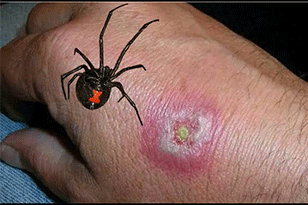Encountering a black widow spider in your home can be a frightening experience. Known for their distinctive glossy black bodies and the red hourglass marking on their abdomens, black widows are often portrayed as dangerous creatures. While bites can be serious, they are rare and can be managed effectively. Here’s what you need to know and do if you find a black widow spider in your house.
Other Topics You Might Like
Helpful Products You Might Like

Wet & Forget Miss Muffet's Revenge Spider Killer
Spray
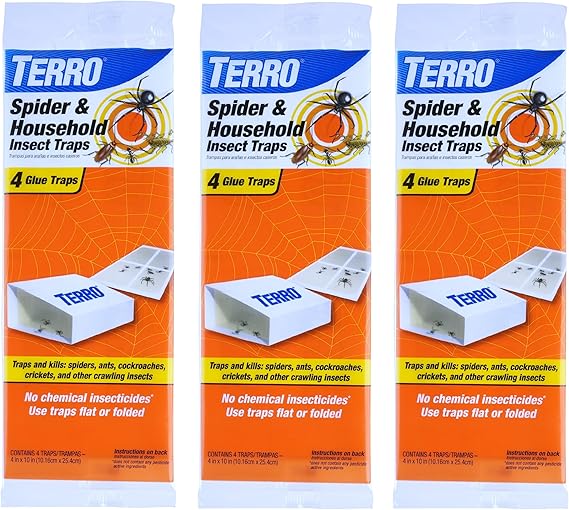
TERRO Non-Toxic Spider & Household Insect
Trap
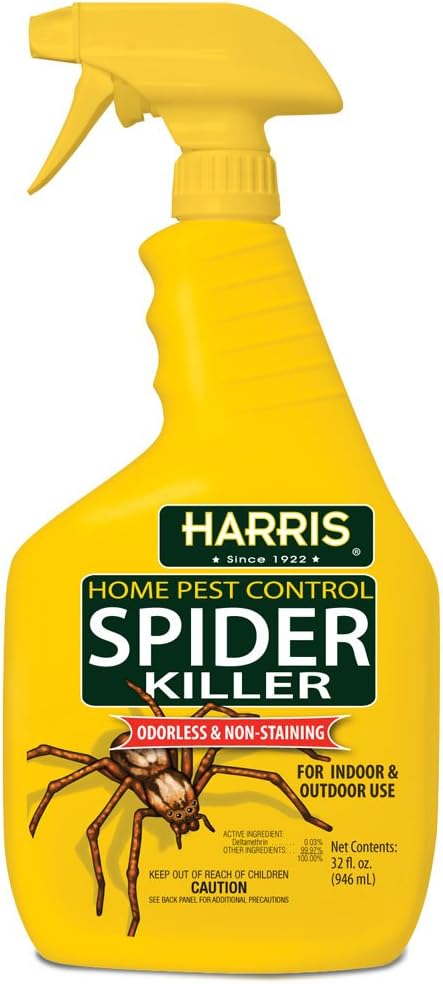
HARRIS Spider Killer Liquid Spray
"(Paid Links)" 
Identify the Spider
The first thing here is to confirm that the spider is a black widow for real. You can recognize the adult females with their black body and a red hourglass. Males are smaller, lighter and less dangerous. If in doubt, snap a picture and check it on online databases, or ask a pest control professional in the area.
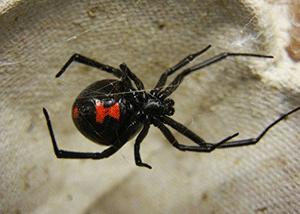
Stay Calm
Finding out that a black widow spider is in the vicinity would compel the average person to get frantic for survival. This however, is not necessary as these spiders are quite passive in nature and will only bite when provoked. A safe distance has to be maintained however, when in the presence of one. Any quick motion in the presence of a spider should be avoided as this will agitate it.
Secure the Area
The effort here should be to make the room where the spider is located as panic free as possible, Try to ensure that the door is closed. This will serve to avoid the case where one spider goes and wanders round the whole house. Children and pets should be kept away from the room. There is an additional thing that should also be mentioned; this will further minimize the risk of an unwelcome encounter.
Spoon and Release
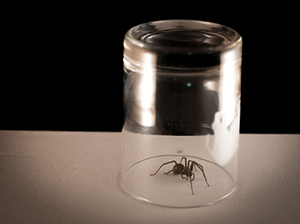
You may attempt to catch the spider and remove it safely. Using a jar of glass or any other glass container, try carefully placing it over the jumping spider to trap it. Then slide a piece of paper under the container to trap the spider inside. When you have caught it, go outside and let the spider go far away from your house if possible. Try to let it go to a place where it will be able to survive, such as a garden or a wooded area.
Call a Professional
It's best to hire a pest control expert if you feel uneasy handling the spider yourself or if you think there may be an infestation. If there are more spiders hiding in your house, they can evaluate the issue and find out. Experts in pest control can also offer suggestions on how to avoid similar incidents in the future.
Prevent Future Visits
Take feisty steps to deter black widows from coming back. Spiders prefer dark, untouched spaces, so start by clearing out your house. Keep your garages, attics, and basements clean on a regular basis. Reduce entrance sites by caulking windows, doors, and foundation cracks and fissures.
Keep outside spaces clean as well. Store firewood away from your house and trim back any shrubs and other vegetation that are close to it. Spiders seeking cover will find your property less appealing as a result.
Educate Yourself and Others
Familiarizing yourself with the behaviors and the acts of a black widow spider may alleviate your fear and better prepare you in the future. Explain to the family how these spiders look like and what to do if they see one. Thanking people for their understanding might help prevent panic in the future.
Know the Signs of a Bite
While it is rare to be bitten, it’s very important to look for the signs mentioned earlier. Some of the symptoms include: pain made sharp, muscle cramps, sometimes nausea and sometimes difficulty in breathing. Should one be fortunate to survive being bitten, they should seek medical attention immediately. Sever cases are treated with antivenin and if used appropriately, should work.
